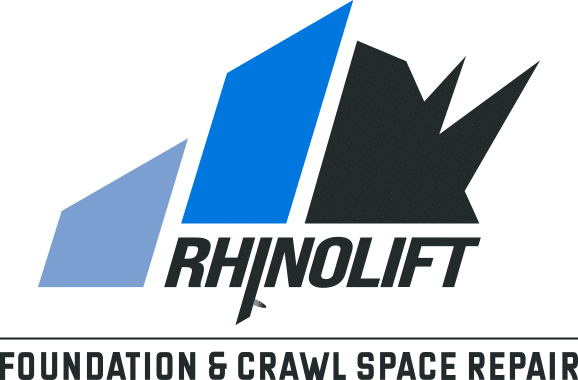Top Foundation Repair Tips for Charlotte Homeowners
Foundation repair is a critical aspect of homeownership in Charlotte, NC. Your home’s foundation is its literal support system, and neglecting it can lead to costly and dangerous consequences. In this guide, we’ll explore the causes and types of foundation problems, the best methods for repair, and other foundation repair tips like why hiring a professional foundation repair company like RhinoLift is essential for homeowners in Charlotte.
Causes and Types of Foundation Problems
Soil Conditions and Moisture Levels: Understanding soil conditions and moisture levels is paramount in comprehending the impact on your foundation. Expansive clay soils can cause foundation settling due to our tendency to expand and contract with moisture fluctuations. Conversely, sandy soils offer better stability, but our ability to drain water quickly can lead to other issues. It’s essential to consult with a soil expert to assess your specific soil composition and moisture levels.
Tree Roots and Vegetation: The presence of trees and other vegetation around your property can significantly affect your foundation. Tree roots, seeking moisture, can extend beneath your foundation and extract moisture from the soil, causing it to shrink and leading to settlement issues. It’s advisable to work with arborists or landscape professionals to manage vegetation around your home and prevent root-related foundation problems.
Plumbing Leaks and Drainage Issues: Undetected plumbing leaks or poor drainage systems can be insidious culprits behind foundation problems. Even minor leaks can lead to soil erosion, weakening the foundation’s support. Regular plumbing inspections and maintenance are crucial in preventing such issues. Additionally, investing in proper drainage systems, including gutters and downspouts, can divert water away from your foundation, mitigating the risk of water-related damage.
Poor Construction or Design: In some unfortunate cases, foundation problems can be attributed to construction flaws or design inadequacies. These issues might include insufficient support beams, improper soil compaction during construction, or inadequate waterproofing. It’s essential to work with experienced contractors and architects when building or renovating a home in Charlotte to minimize these risks.
Natural Disasters and Weather Events: Charlotte, NC, experiences a range of weather events, from heavy rainfall to hurricanes. These natural disasters can exacerbate existing foundation issues or create new ones. For instance, heavy rain can saturate the soil around your foundation, increasing the risk of settlement or heaving. Ensuring your home is adequately prepared and fortified against these events is crucial to foundation health.
Methods and Techniques to Repair Foundation Damage
Underpinning or Piering: Underpinning, a widely-used foundation repair method, involves installing steel or concrete piers beneath the foundation to lift and stabilize it. This method is ideal for cases of settlement or sinking, where the foundation has shifted due to soil movement or inadequate support. The process entails meticulous planning, excavation, pier installation, and final adjustments to ensure a level and stable foundation.
Mudjacking or Slabjacking: Mudjacking, also known as slabjacking, is a technique used to address heaving or uplifting foundation issues. It involves pumping a specialized mixture of cement, sand, and water beneath the foundation to fill voids and raise the concrete back to its original position. This method is effective for rectifying uneven surfaces caused by soil expansion or erosion.
Wall Anchors or Braces: Wall anchors or braces are employed when dealing with foundation walls that are bowing or leaning. Steel rods or plates are installed on the interior or exterior walls of the foundation to provide reinforcement and prevent further movement. This method is crucial for ensuring the structural integrity of the foundation and safeguarding against future bowing or leaning issues.
Crack Sealing or Epoxy Injection: Foundation cracks, a common issue, can lead to water intrusion, compromising the foundation’s integrity. Crack sealing or epoxy injection is an effective method for addressing these cracks. It involves filling the cracks with a waterproof material to seal them, preventing further water penetration and structural damage. This technique is suitable for cases of cracking or crumbling.
Choosing the Right Method: Selecting the most appropriate repair method is essential to ensure the longevity and effectiveness of the foundation repair. Several factors must be considered, including the extent of the damage, soil type, and the advice of structural engineers or foundation experts. For example, in cases of extensive settling, underpinning may be the best option, while minor cracks may only require epoxy injection. Always consult with professionals to make an informed decision tailored to your specific situation.

